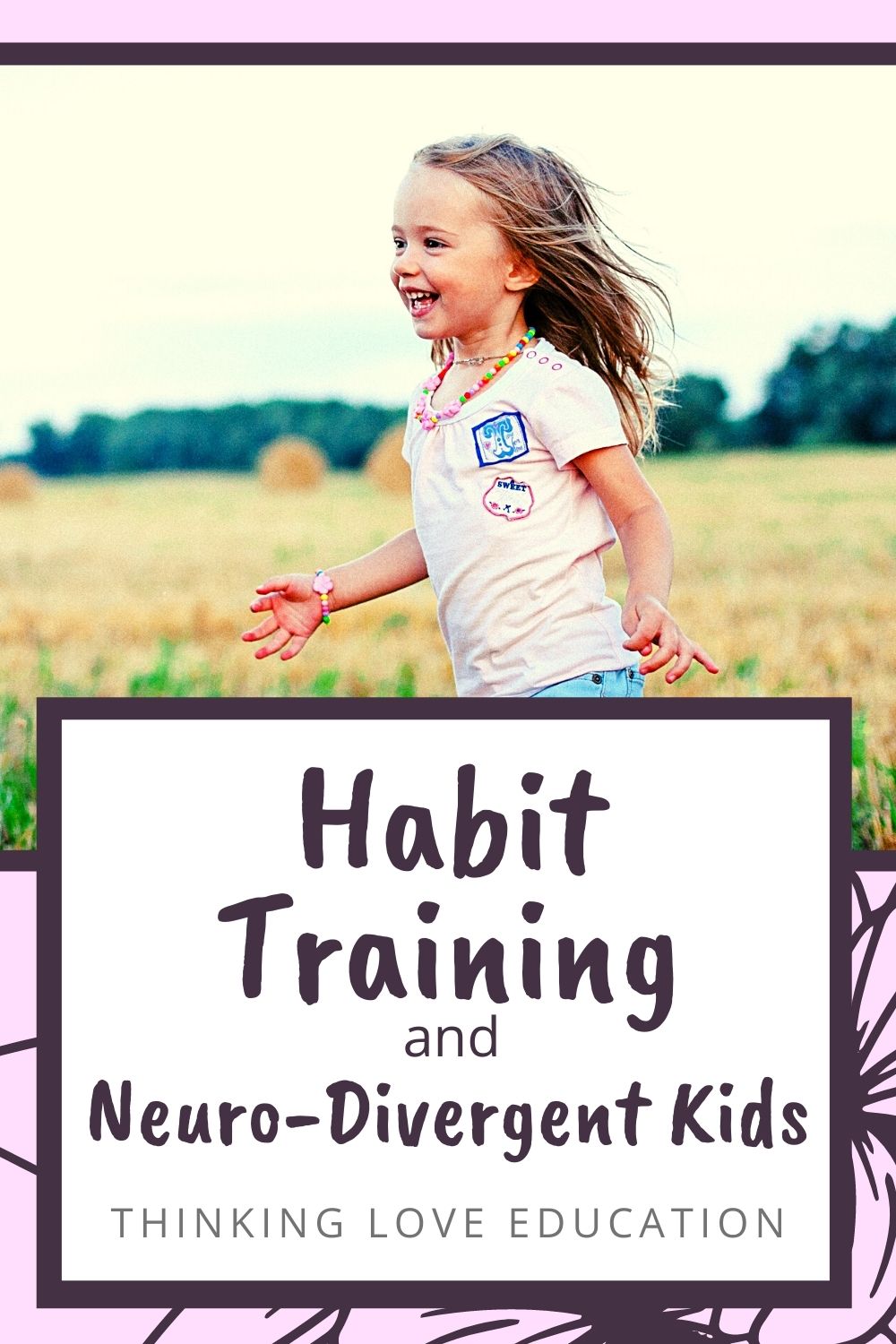In this episode of the podcast, Amy and Leah circle back to the topic of habit training, but with a special focus this time on kids with differently wired brains. We explore how we might expand our understanding of “Education is a Discipline” and think about how to break habits down in order to help our kids learn and grow – starting right where they are. Join us as we break down Charlotte Mason’s ‘big three’ habits (obedience, attention, and truthfulness) from the perspective of neuro-divergent children.
In this episode we mention our Habit Training Workshop as well as Leah’s executive function cards.
Listen now, or scroll for show notes!
Perhaps it is not too much to say, that ninety-nine out of a hundred lost lives lie at the door of parents who took no pains to deliver them from sloth, from sensual appetites, from willfulness, no pains to fortify them with the habits of a good life.
Charlotte Mason, Home Education
What does it mean to be ‘neuro-divergent?
[1:13] What it means is that someone’s brain is differently wired. This happens because of a learning disability, neurological disorder, or ADHD.
[3:19] Neuro-diverse children often have trouble with whatever area that is their specific need (sensory processing disorder, for example) but on top of that, they most likely struggle with executive functioning skills.
The Heart Behind Habit Training
[6:44] Charlotte Mason is speaking to a group of people who naturally have a set of basic skills to build up from.
[8:00] I think there are grounds for expanding the educational tool of ‘discipline’ from habit training alone to parenting and educating in a way that works with the way the brain works. We’ve made some advances since Charlotte Mason’s day, and I think it’s wise to consider those advances
The Big Three Charlotte Mason Habits
Obedience
[11:06] For a child who struggles with listening (possibly because of a neurological disorder) focus (because of a lack of executive functioning skills) and planning (for the same reason) then obedience is not going to be something that is all that possible at this point.
Attention
[16:28] Charlotte Mason thought we could help a child build attention starting when children are really young, by redirecting them when their attention starts to wander towards a different toy or activity
Truthfullness
[21:34] Going back to the executive functioning skill of planning, we know that some children might be more impulsive because of this. Rather than thinking out, “It’s right to tell the truth,” they just blast out something that isn’t true.
Mentioned in this Podcast
The book Charlotte Mason wrote for a child’s self education is Volume IV, Ourselves.https://thinkinglove.education/library/#tve-jump-177c0202b68
Atomic Habits by James Clear
The Explosive Child by Ross Greene
Scattered to Focused by Zac Grisham (affiliate link)
Executive Function Cards at My Little Robins


